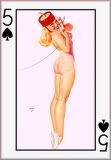Eustace Mullins : Hater or Educator?
Corsair, the Life of J.P. Morgan,34 tells us that the Panic of 1857 was caused by the collapse of the grain market and by the sudden collapse of Ohio Life and Trust, for a loss of five million dollars. With this collapse nine hundred other American companies failed. Significantly, one not only survived, but prospered from the crash. In Corsair, we learn that the Bank of England lent George Peabody and Company five million pounds during the panic of 1857. Winkler, in Morgan the Magnificent35 says that the Bank of England advanced Peabody one million pounds, an enormous sum at that time, and the equivalent of one hundred million dollars today, to save the firm. However, no other firm received such beneficence during this Panic. The reason is revealed by Matthew Josephson, in The Robber Barons. He says on page 60:
"For such qualities of conservatism and purity, George Peabody and Company, the old tree out of which the House of Morgan grew, was famous. In the panic of 1857, when depreciated securities had been thrown on the market by distressed investors in America, Peabody and the elder Morgan, being in possession of cash, had purchased such bonds as possessed real value freely, and then resold them at a large advance when sanity was restored."36
Thus, from a number of biographies of Morgan, the story can be pieced together. After the panic had been engineered, one firm came into the market with one million pounds in cash, purchased securities from distressed investors at panic prices, and later resold them at an enormous profit. That firm was the Morgan firm, and behind it was the clever maneuvering of Baron Nathan Mayer Rothschild. The association remained secret from the most knowledgeable financial minds in London and New York, although Morgan occasionally appeared as the financial agent in a Rothschild operation. As the Morgan firm grew rapidly during the late nineteenth century, until it dominated the finances of the nation, many observers were puzzled that the Rothschilds seemed so little interested in profiting by investing in the rapidly advancing American economy. John Moody notes, in The Masters of Capital, page 27, "The Rothschilds were content to remain a close ally of Morgan... as far as the American field was concerned." 37 Secrecy was more profitable than valor.
"For such qualities of conservatism and purity, George Peabody and Company, the old tree out of which the House of Morgan grew, was famous. In the panic of 1857, when depreciated securities had been thrown on the market by distressed investors in America, Peabody and the elder Morgan, being in possession of cash, had purchased such bonds as possessed real value freely, and then resold them at a large advance when sanity was restored."36
Thus, from a number of biographies of Morgan, the story can be pieced together. After the panic had been engineered, one firm came into the market with one million pounds in cash, purchased securities from distressed investors at panic prices, and later resold them at an enormous profit. That firm was the Morgan firm, and behind it was the clever maneuvering of Baron Nathan Mayer Rothschild. The association remained secret from the most knowledgeable financial minds in London and New York, although Morgan occasionally appeared as the financial agent in a Rothschild operation. As the Morgan firm grew rapidly during the late nineteenth century, until it dominated the finances of the nation, many observers were puzzled that the Rothschilds seemed so little interested in profiting by investing in the rapidly advancing American economy. John Moody notes, in The Masters of Capital, page 27, "The Rothschilds were content to remain a close ally of Morgan... as far as the American field was concerned." 37 Secrecy was more profitable than valor.



